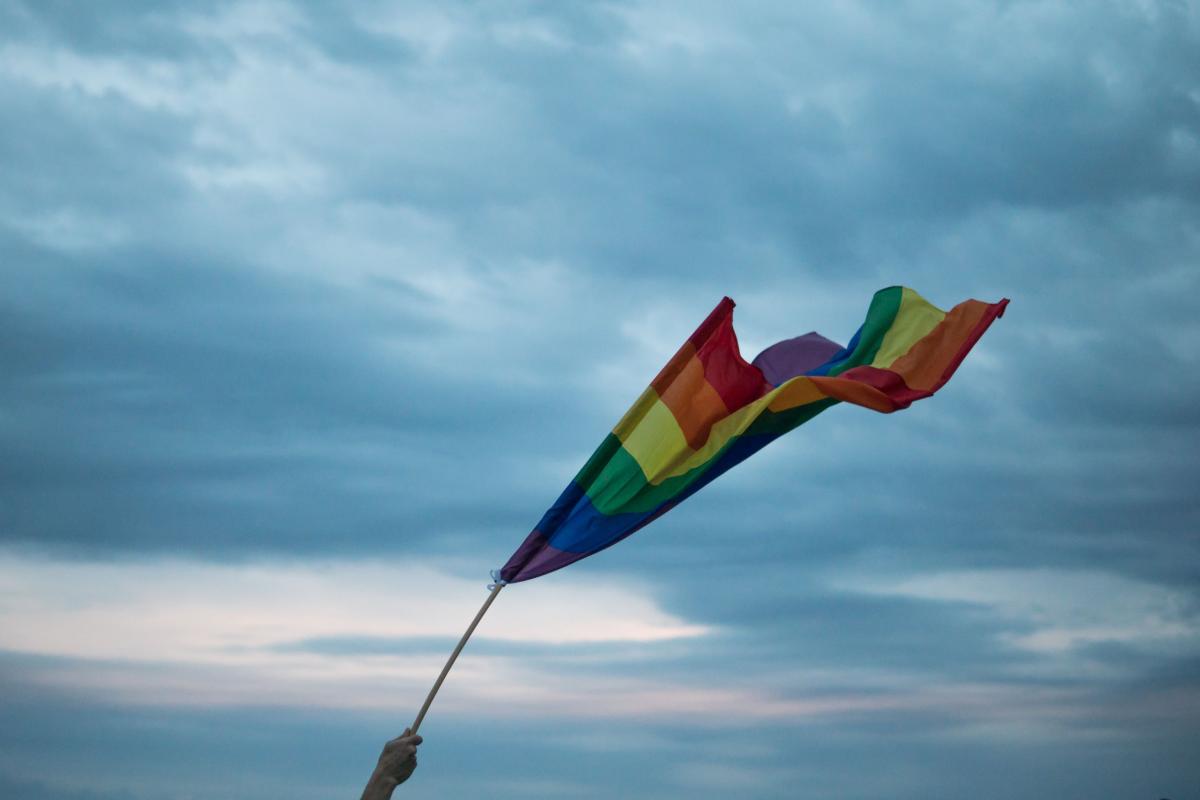With the kickoff for the FIFA World Cup 2022 in Qatar imminent, the country’s laws around the LGBTQ+ community are well documented and making many headlines. And rightly so.
Knowing this was coming, Stonewall — the UK's leading lesbian gay, bi, and trans equality charity — has updated its famous Rainbow Laces campaign, created by Lucky Generals.
For almost ten years, Rainbow Laces has brought visibility for LGBTQ+ people in sport and raised awareness of those experiences on and off the pitch.
As part of this, Stonewall commissioned new research alongside ICM/Walnut to find out about the attitudes of the community within this country. With room for optimism, it found that:
- The number of fans who think homophobic remarks within sports are acceptable has almost halved in the past five years, with a drop from 25 per cent in 2017 to 14 per cent in 2022.
However, slightly more negatively it found that:
- Just 40 per cent of sports fans think competitive sport is welcoming for gay and bi men, with the figure at 43 per cent for lesbian and bi women, and just 29 per cent for trans people.
Reaffirming that while great strides have been made, more work needs to be done.
To find out more we interviewed Robbie De Santos, Director of Communications and External Affairs at Stonewall, and Paul Mallon, Head of Special Ops at Lucky Generals about the campaign.
In the run-up to the World Cup, why is it important that we tackle this subject through advertising? How can advertising like this help?
Robbie:
There is so much raised consciousness of human rights around this Men’s Football World Cup in Qatar, including a spotlight on the experiences of LGBTQ+ people in Qatar and other places like Qatar where LGBTQ+ people are subject to state-sponsored persecution.
Advertising can help direct that raised consciousness to actions that can help in the longer term, whether it’s creating more pressure on decision-makers like FIFA and the UK Government to use their power for good, or whether it’s encouraging the public to inform themselves and their friends and show solidarity.
Paul:
In previous years, the language, themes and emotions of football has been used to great effect to amplify Rainbow Laces. The launch campaign with Paddy Power in 2013 was a powerful example with creative lines like: ‘Over 5000 professional players and none of them are gay. What are the odds on that?’ The message was going clear, loud and direct to a huge football audience. We know that society has become a better place since, but using strong football metaphors with the power of advertising we hope can cut through more as Rainbow Laces hurtles towards its 10th anniversary next year.
And this Christmas, ahead of the World Cup in Qatar, a nation with no footballing heritage and well-documented human rights issues, it’s more important than ever to spread the message far and wide.
What are the issues?
Robbie:
With Rainbow Laces 2022 campaign we’re talking about LGBTQ+ inclusion in sport in the UK, and the human rights of LGBTQ+ people across the world.
In the UK we’ve seen huge progress in the nine years since the campaign in 2013, with sport bodies from football to golf and beyond stepping up their support for LGBTQ+ participants, fans and employees of their sports. But anti-LGBTQ+ abuse still happens, in fact it’s on the rise across the UK, and that filters through to sport. In the UK, we need to tackle the sense of complacency we risk drifting into because things have got better.
Globally, we want to be very careful not to make this all about the situation in Qatar and the tournament there, because Qatar is just one of many countries where LGBTQ+ are persecuted for who they are on a daily basis, with no rights and protections. Stonewall works globally for LGBTQ+ rights, and better awareness and concern here in the UK of the wide range of challenges our communities face across the world can help make the case for more action from the UK Government and international institutions, like FIFA or the United Nations.
Why do they need to be tackled?
Robbie:
At Stonewall, we imagine a world where every LGBTQ+ person is free and safe to be themselves, has equitable access to services and support across their life and can fulfil their potential.
When you look at sport in the UK, harassment and abuse stop us from feeling safe and prevents us from freely and openly being ourselves and doing the things we love. When you consider policies that exclude trans people from sport or a lack of action on bullying or abuse, that means we aren’t being treated fairly and being given the same opportunities, and all of this stops us from doing what we love.
When we look at Qatar and similar countries where LGBTQ+ are far from free to be themselves, this has a cruel and devastating impact on LGBTQ+ people. Can you imagine being afraid to even have a relationship in private for fear of punishment?
We also want LGBTQ+ fans of football to enjoy tournaments and to feel safe being there and safe showing solidarity for LGBTQ+ people. FIFA should be able to guarantee the safety of all fans taking part in the tournament.
Paul:
There’s just one player who’s comfortable enough to come out in the environment of the men’s game at elite level in England. One. Clearly there’s huge issues with this, when so many other aspects of society have moved on. And while clubs, like Chelsea to name one, have promoted tremendous work recently supporting the LGBTQ community, you then see the same clubs having to apologise for the actions of fans and homophobic chants. It’s less about the players and adult supporters for me, and more about younger fans who may be questioning their identity — and hearing homophobic language around sport will do them nothing but harm.
Following the previous work, what was the inspiration behind the campaign?
Robbie:
We wanted to go back to the roots of Rainbow Laces that Lucky Generals helped create – connecting deep into the culture of sport and using language from sport to bring it home to sport fans that LGBTQ+ inclusion in sport and tackling the homophobia, biphobia and transphobia that exists is central to the game that people love.
Paul:
Every fan loves a last-minute winner or never-say-die hero. This led us to ‘don’t give up’ as a strategic territory in terms of the fight against homophobia. Creatively this has come to life with a series of football headlines, bound together by the ‘lace up to keep it up’ tagline.
What’s the main message of this project and why does it matter?
Robbie:
We’ve achieved this progress together, thanks to so many people – whether fans, players or leading sport bodies. But we can’t be complacent – if we don’t own the fight for LGBTQ_ inclusion in sport together then the progress we have made so far will slip away from us
So we need to keep it up, to make sport everyone’s game.
Paul:
We can’t switch off now. Lace up to keep it up. Because we know that while there’s been huge positive strides, we haven’t won this game yet.



